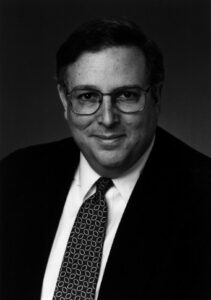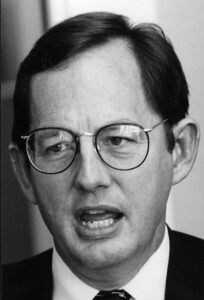A few years ago, fistfights would break out in the parking lots of state offices in Miami as HMO salesmen rushed to sign up welfare mothers arriving to pick up food stamps.
Some marketers parceled out gifts of diapers or cheap medicines to make a sale. Some falsely told women they would be stripped of Medicaid coverage unless they joined the HMO on the spot. A few agents weren’t above forging signatures on enrollment forms.
Florida decided to crack down after media reports of HMO sales alarmed legislators. Last December, state officials agreed to spend $39 million over four years to hire a Medicaid enrollment “broker,” a firm that presents people on welfare with truthful and “unbiased” information about their health care options.
Enrollment brokers are the latest hope for states eager to improve the quality of welfare medicine and slow down, if not stop, exploitation of the poor by some managed care plans. About 20 states are using brokers, mostly out of concern that Medicaid HMOs cannot be trusted to market their coverage honestly and fairly.
But some states are discovering that the brokering of patients creates new headaches, said Medical College of Virginia professor Robert Hurley, who has studied Medicaid managed care trends extensively. “The performance of these brokers has been uneven so far,” he said.
Hurley said too many states rush into contracts with brokers without clearly defining the firms’ duties, or failing to anticipate a backlash from highly-competitive health plans worried they will lose patients.
Enrollment squabbles are the Achilles heel of the national movement to shift welfare patients to HMOs, added Michael Sparer, a professor of health policy at Columbia University School of Public Health.
Sparer said few state governments want to hire extra staff to advise welfare clients how to navigate the HMO maze or help them pick plans which offer the most attentive medical services. Without unbiased counseling, however, the poor are vulnerable to deceptive, or fraudulent sales scheme by HMO marketers, most of whom earn commissions based on the numbers of new members they sign.
So signing a contract with an enrollment broker seems to make sense. Ideally, enrollment brokers have no stake in the patient’s choice of health plans. Most send welfare recipients letters advising them of their options, hold community meetings and set up telephone hotlines to answer questions and field complaints.
The mailings and phone calls don’t always work, though, a fact some states realized only after shelling out millions of tax dollars to enrollment brokers.
“The trouble is that many Medicaid clients don’t read their mail or when they call back the 800 number it is busy,” said Sparer. “When a lot of clients don’t respond they get assigned to a plan, and it may not be the one they want. The states are struggling with this.”
In Philadelphia, for instance, just 4 percent of 170,000 surveys mailed by Benova, Inc., to welfare recipients were returned. Of those who responded, more than half had never talked to a Benova enrollment counselor, according to a January 1998 audit by Pennsylvania Auditor General Robert P. Casey Jr. Overall, 61 percent of Medicaid clients did not use the enrollment services even though the state paid a broker nearly $13 million over two years, the audit found.
The U.S. General Accounting Office also spotted bureaucratic blunders by Benova in California, the nation’s most ambitious plan to shift Medicaid clients into HMOs. Thousands of pieces of literature that should have been mailed to welfare recipients sat in a warehouse instead, auditors found. In some counties as many as 80 percent of welfare clients failed to respond to Benova’s counseling efforts.
Benova lost the California contract in 1997 to its arch-rival in the enrollment business, Maximus, Inc., an investor-owned company in McLean, Va., that is moving aggressively to help privatize welfare.
Oregon-based Benova, which declared bankruptcy in 1997 after the California debacle, has since found a new source of financing. In March it became an affiliate of the $85-billion-dollar Fleet Financial Group of Boston. Benova executives said any past problems have been overcome.
Florida officials hope to learn from the mistakes made by brokers elsewhere. “We’re trying to proceed very carefully with this contract,” said Kate Morgan, who directs Florida’s Medicaid managed care program.
Even if Benova puts an end to unseemly marketing tactics in Florida, the firm faces an uphill fight to placate 15 Medicaid health plans fighting each other for patients – and a larger slice of the state’s $7 billion-a-year Medicaid budget.
Because the state pays HMOs a flat fee each month per patient, about $100 on average, health plans relying on Medicaid live or die by the numbers of patients they sign up. HMOs worry that enrollment brokers will favor large plans over small ones, or steer patients to less restrictive types of managed care. In Florida, for instance, Medicaid clients can choose between one of the HMOs or a program called MediPass, an alternative in which people can choose their own doctor. MediPass, in particular, is greatly feared by HMOs, because most welfare recipients who choose an option prefer it.
“A lot of states have seen HMO enrollment decline or flatten once they bring a broker on board,” said Hurley of the Medical College of Virginia.
As Florida officials readied their brokering program in spring 1998, they decided to give Medicaid clients 90 days to choose an option. Those who fail to choose either MediPass or one of the HMOs are assigned by default.
Just how many people will be motivated to make a choice remains unclear. During 1997, 83 percent of Medicaid recipients in Florida did not choose either an HMO or MediPass when given 30 days to do so.
Benova expects to do better. “In our experience when you have an active campaign a majority will chose,” said Lisa Adatto, Benova’s marketing director. In other states, “up to nine of ten” Medicaid clients have done so, she said.
But Florida HMOs are not taking any chances. Early in the 1998 legislative session, industry lobbyists sought to amend state law so as to require any Medicaid clients who fail to make a choice to be assigned to HMOs, not MediPass.
“This is a whole new ball game for us,” said HMO lobbyist Bobby Bernal in Tallahassee. “There are some high anxieties out there.”
©1999 Fred Schulte
Fred Schulte, an investigative reporter from the Ft. Lauderdale Sun-Sentinel, is examining the business of HMOs.


